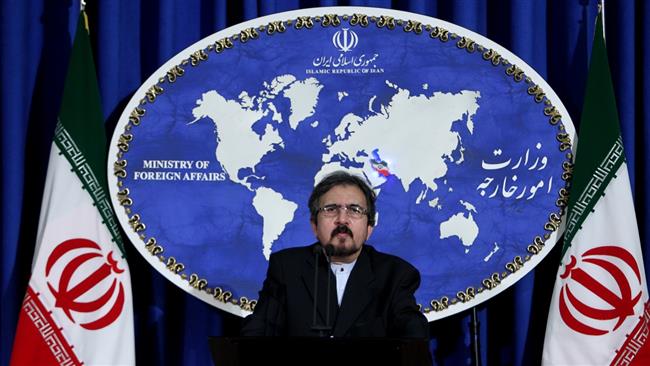Alwaght- A British sponsored resolution against Iran over the Yemen war, which is to be into a vote at the United Nations Security Council on Monday, would be helping "invaders and aggravate the invasion," Iran's Foreign Ministry Spokesman has said.
Speaking to reporters in Tehran earlier Monday, Foreign Ministry spokesman Bahram Qassemi said "We do not send arms to Yemen. Such blame games are being waged by those who are fanning [the flames of] war and bloodshed in Yemen."
The spokesman further said, "What is happening in Yemen is the result of arms exports by the United Kingdom and the United States to Saudi Arabia."
Iran, he said, was observing "dishonest behavior" on the part of the British government, which is trying to use the international mechanism to support the invader despite its claims of seeking to end the Saudi war.
London and Washington have been arming Saudi Arabia since 2015 when the kingdom and its allies invaded Yemen to restore its Riyadh-allied government. Around 13,600 people have died since the invasion began.
Muslim Unity needed to confront US move on al-Quds
Elsewhere in his remarks, Qassemi said the United States will pay the price for its plan to relocate its embassy from Tel Aviv to Jerusalem al-Quds.
President Donald Trump formally recognized Jerusalem al-Quds as Israel's "capital" on December 6 and announced plans to move the US embassy to the occupied holy city.
"This is one of the United States' very wrong policies, for which it will pay the price in the future," Qassemi noted.
"With the mindlessness which we see in American decisions, there is need for serious action in the Islamic world," the official added.
On Syria, Qassemi also hoped that calm would return to the Syrian capital and its Eastern Ghouta suburbs which are the scene of fierce government clashes with foreign-backed terrorists.
Qassemi said the Islamic Republic wants a ceasefire across Syria so that humanitarian aid could reach civilians.
The spokesman also commented on Turkey's ongoing military operation in Syria's Afrin region, saying Iranian, Turkish, and Russian foreign ministers and presidents would be meeting in May to discuss the situation in the Arab country.



























